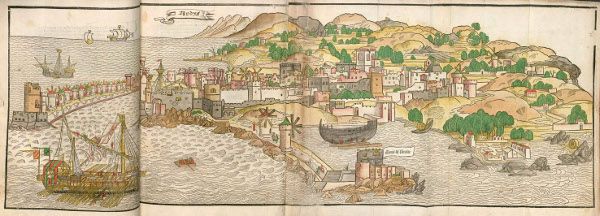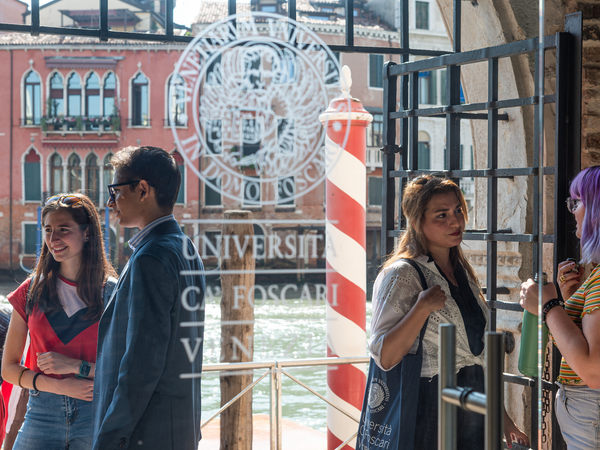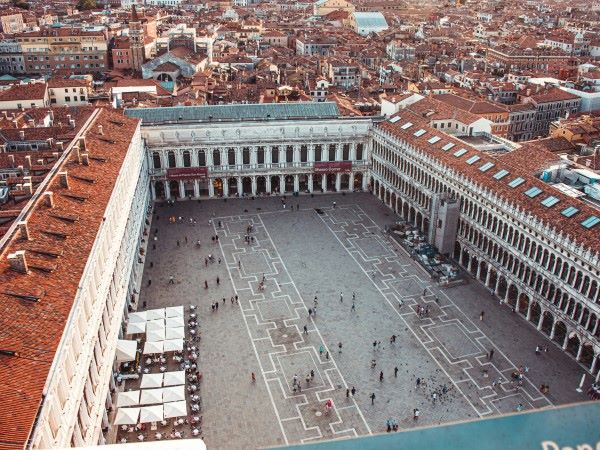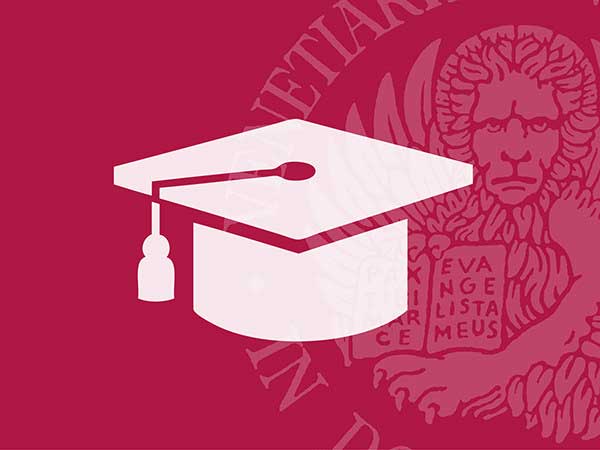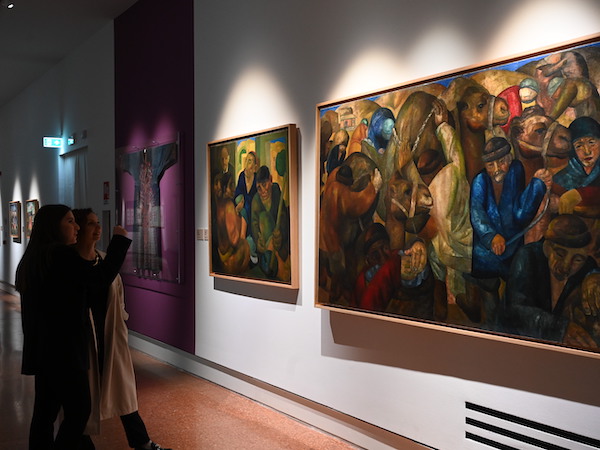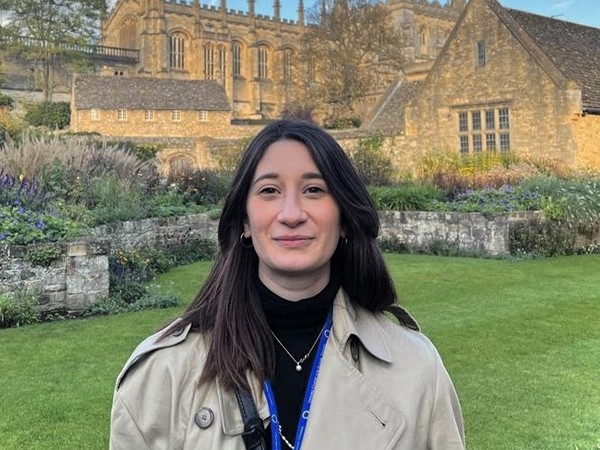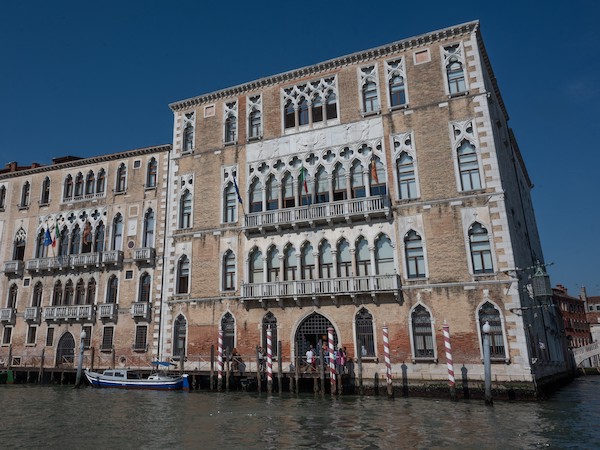Thomas Coward is a British Classicist specializing in ancient Greek literature, whose research and teaching focuses on Greek language, history, and culture. He brought his expertise in Greek drama and lyric, intellectual history, and fragmentary literary texts to Ca’ Foscari University thanks to a research project, granted by a Marie Curie Individual fellowship, to investigate Rhodian intellectual life and its pivotal influence in the formation of the Classics and Greco-Roman culture.
Cicero, Torquatus and Julius Caesar, among others, benefited from periods of study (an ante litteram student and scholar’s mobility) in this lively venue of interchange, a place of learning and cross-fertilization between Greece, Syria, Asia Minor and Egypt, on the one hand, and Rome. We are talking about the period 168 BC – AD 44, when Rhodian and Greek identities transformed from a predominately economic and political power to a cultural one, in a Greek and subsequently Greco-Roman world.
We have talked about this “dark side” of Mediterranean history with Thomas Coward, who having obtained his PhD at King’s College London and having worked in London and the U.S.A., chose Ca’ Foscari University to open his research horizons boosted by a Horizon2020 grant on “Intellectual Life and Learning on Rhodes (168BC-AD44)”.
HD: Why did you choose Venice and its university to implement your research project?
TC: I chose to apply to Ca’ Foscari because of my past experiences with the university, and the strong philological and epigraphical pursuits undertaken in the Department of Humanities. I first met Prof. Cingano in London in 2011, who later supervised me that year at the Advanced Seminar for the Humanities, held at Venice International University. I first laid there the seeds for what would become my Marie Curie project. I was later invited to speak at conferences in Venice in 2015 and 2018: the opportunity to return and work there was therefore a tempting prospect.
Venice is furthermore strategically located in relation to the study visits I have planned to Berlin, Copenhagen, and Rhodes, to inspect materials (inscriptions, sepulchral tombs, papyri, …) and to forge new connections. And what about the unique cultural environment offered? One can be a Marie-Curie in many places, but Venice is different. I hope indeed to have more occasions to meet the academic and in particular the Marie Curie community in Venice, given also its European standing, maybe in a dedicated event, so that it does not became an isolating experience.
What kind of work will you develop here?
I will continue my work on Greek and Roman literature and ancient scholarship, but also develop my skills in Greek epigraphy and Greco-Roman oratory and philosophy benefiting from the exchanges with my Department’s colleagues and its laboratories. My aim is to examine the remains of Rhodian archaeology, epigraphy, literature and learning and to trace their legacy and influence in shaping Mediterranean history.
In fact, Alexandria, Pergamum and other major ancient cities have received the regular attention of historians, whereas Rhodes lacks a continuous literary history. By analysing its intellectual life in all its forms (e.g. philology, history, philosophy, rhetoric, the sociology and anthropology of knowledge), I will be able to recreate and examine a regional network cluster in the ancient Mediterranean knowledge economy and to demonstrate Rhodes’ role in the formation of the Classics and the Humanities.
Could you bring us some examples of such a fertile interchange?
Rhodian philosophy and oratory was a strong influence on several Romans who visited Rhodes for further training. For example, Apollonius Molon taught, amongst others, Cicero, Torquatus, and Julius Caesar. Brutus and Cassius are also known to have studied there. Cicero had met Apollonius Molon first in the late 80s BC in Rome. In 78 BC, Cicero also attended the lectures of the Syrian polymath Posidonius who had settled on Rhodes, lectures which Pompey also attended in 67 and 62 BC on the way to and from his military campaigns in the East. Cicero himself refers to the Rhodians as doctissimi homines (‘very learned fellows’, Cic. Part. or. 34.118), when advising his son on how to handle witnesses and evidence. From a regional and Greek perspective, Polemaios of Klaros (ca. 130-110 BC) left his home island to seek further education ‘by the best tutors’ who were to be found on Rhodes, as proven by his honorary inscription and biography. Clearly, Rhodes was a finishing school for the Roman elite.
There are also testimonies in the fields of engineering, architecture, and the sciences: for example Vitruvius cited and used the works of several Rhodian engineers, and the main source for his second book was probably Posidonius, first-hand read or via the Latin scholar Varro.
These examples demonstrate the mobility of (elite) individuals around the Aegean and Mediterranean who travel to Rhodes to further their learning and citizen credentials, and the transmission of works from figures based on Rhodes and the impact of these in other places. They serve as means of comparison, and, conceivably, of inspiration, when dealing with analogue features of our contemporary world, which include the mobility of students and scholars, the formalisation and diversification of academic disciplines, languages and multilingualism, and the use of cultural heritage and learning as means of identity and representation.
Which outputs and outcomes do you expect from this research?
This first intellectual history of the island of Rhodes will consist of two articles and a monograph, divided into thematic chapters by discipline. It is my intention to continue my work in the Classics in a project of new critical editions with annotated translations of the commentaries of the Byzantine scholar John Tzetzes, who was recently the topic of an international conference held at Ca’ Foscari by my dear friend and colleague, Enrico Emanuele Prodi, Marie-Curie grant holder, too, at the Department of Humanities.
I also plan several events as part of this project: in early April 2019 a one-day seminar at Ca’ Foscari on ‘Hellenistic Scholarship and Learning outside Alexandria’, to be hopefully taken on tour to the Celtic Classics Conference in 2020, and an international conference on pre-modern knowledge economies, covering from Antiquity to the Baroque, designed to examine and demonstrate the workings of various knowledge economies (‘Learned Connections’) across the world in the pre-digital age. This would chime with Ca Foscari’s policies of being ‘Aperto al Mondo’ and a continuation of the sesquicentennial celebration of the university.





